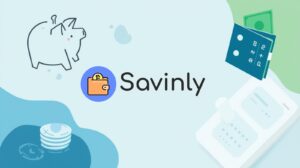So, you’re finally stepping into that grown-up world of bills, budgets, and dreams of financial freedom? If the thought of managing your money feels a little overwhelming—or worse, like a puzzle missing some pieces—you’re not alone. But here’s the kicker: mastering a few good financial habits for young adults early on can save you a truckload of stress later. Seriously, it’s less about being perfect and more about making small choices that add up over time. Trust me, I’ve been there—skipping coffee runs and canceling a few subscriptions turned out to be my secret sauce for saving enough for an epic weekend getaway. Curious how to do that for yourself? Let’s dive in together.
Start Early
Ever noticed how the people who get ahead in money seem to start before everyone else? There’s a reason for that. Beginning your money habits young gives you a long runway to build wealth and avoid headaches down the road. Experts at Investopedia highlight this too—starting early isn’t just smart, it’s crucial for financial success.
What’s Holding You Back?
Look, young adult life throws a lot at you: student loans, first jobs, rent payments. Sometimes you just want to blow off steam and treat yourself. I get it… we all mess up sometimes. But some habits sneak in and drain your wallet without you noticing. Cue bad financial habits—think impulsive buying, maxing out credit cards, or ignoring your spending.
Signs You’re Ready for Change
| Old Habit | New Win | Monthly Savings |
|---|---|---|
| Daily Takeout Coffee ($5/day) | Brew at Home ($1/day) | $120 |
| Impulse Online Shopping ($50/week) | Waiting 24 Hours Before Buying | $200 |
| Subscription Overload (5 services) | Keep 2 Favorite Subscriptions | $30+ |
Have you ever caught yourself saying “I don’t know where the money went”? This is usually the first clue that your habits need some tweaking.
Why Compound Interest Rocks
Think of compound interest like planting a money tree—start early, water it regularly, and watch it grow faster than you expect. Even tossing $100 a month into a simple investment account can bloom into thousands by the time you hit 40. That’s the power of time on your side.
Want a quick wins mindset? Try pairing compound interest magic with strategies in the best financial advice for 25 year olds and see how small steps feel like giant leaps.
Budget Like a Pro
Budgeting: it sounds like a chore, but it’s really your ticket to freedom. Instead of letting money control you, take the reins and decide where it goes. A simple rule I swear by is the 50/30/20 budget. Heard of it? Here’s the breakdown:
Tracking Your Spending
First off, you gotta see where your cash is sneaking away. Apps, spreadsheets, or even a pen and paper work wonders. State-specific tips like financial planning for young adults illinois can help if you’re looking for local insight.
50/30/20 Rule Explained
| Category | Percentage | Examples |
|---|---|---|
| Needs | 50% | Rent, utilities, groceries |
| Wants | 30% | Eating out, hobbies, subscriptions |
| Savings & Debt | 20% | Emergency fund, loan payments, investments |
Side note: I personally cut a couple of subscriptions once and surprised myself with a neat little stash for my first solo trip. Feels good, right?
Avoid the Common Pitfalls
Have you ever made a budget, then blown it by week two… or, let’s be honest, day two? You’re not alone. Many people mistake budgets for wish lists—things they hope to do, not stick to. The secret is discipline and flexibility in equal measure.
Save Like a Boss
Saving can seem… slow. Like, watching paint dry slow. But it’s your safety net, your ticket out of emergency stress. The Consumer Financial Protection Bureau recommends aiming for 3 to 6 months of essential expenses tucked away.
Emergency Funds Matter
I remember my car broke down unexpectedly, and I had $1,000 ready to roll. Saved me from frantic borrowing or long rides on a busted bus. That’s the power of an emergency fund.
High-Yield Savings vs Traditional Savings
| Interest Rate (Approx.) | Accessibility | |
|---|---|---|
| Traditional Savings | ~0.01% | Very accessible |
| High-Yield Savings | 3% – 4% | Accessible but may require minimum balance |
Looking to ditch those bad financial habits of stashing cash in a shoe box? High-yield accounts grow your money faster with little effort.
Spice Up Your Saving
Not into watching numbers creep up slowly? Try fun challenges like the 52-week savings challenge or no-spend weekends. Throw in some motivation from financial planning for young adults illinois resources that nudge you in the right direction.
Invest Without Fear
Investing sounds scary, right? Stocks, bonds, ETFs — all these buzzwords can feel like a foreign language. But the earlier you get comfortable, the better off you are. The market is not an enemy; it’s an opportunity.
Where To Begin?
Start with what you know. Apps make investing easy even if you begin with $50 or $100. Opening a Roth IRA or a simple index fund is a solid start—nothing too flashy, just smart. SmartAsset explains that financial literacy first helps you pick good moves.
Stocks Vs. Funds
| Investment Type | Risk Level | Typical Use |
|---|---|---|
| Individual Stocks | Higher risk | Potentially higher reward, more hands-on |
| Index Funds/ETFs | Lower risk | Long-term growth, beginner-friendly |
One friend of mine started investing just $50 a month in a broad index fund while juggling student loans. Fast forward a few years, and she’s smiling about steadily climbing retirement savings. Not bad for small beginnings, huh?
Retirement Isn’t Far Away
Yep, I know you’re thinking, “Retirement? That’s so far off.” But putting money in a 401(k), especially with employer matches, is basically free money dropping into your pocket. Axos Bank’s 10 financial tips for young adults include starting now because time compounds your gains like nothing else.
Keep Debt in Check
Debt can be like a sneaky monster under the bed if you don’t handle it right. High-interest credit cards, student loans, car payments—they all add up and can trap you in a cycle. Avoid falling into those bad financial habits by understanding your limits.
Credit Scores Demystified
Credit isn’t a four-letter word if you handle it smartly. Building good credit opens doors to better loans, apartments, and even job opportunities. But it’s easy to tank your score if you max cards or miss payments.
Ways to Attack Debt
| Method | How it Works | Best For |
|---|---|---|
| Debt Snowball | Pay smallest debt first | Building momentum |
| Debt Avalanche | Pay highest interest debt first | Saving money on interest |
Pick one and stick to it—even small extra payments move you faster towards freedom.
Borrow Wisely
Need a loan or credit? Shop around and don’t be shy about negotiating. If you’re in Illinois, local experts specializing in financial planning for Young Adults illinois can offer tailored advice that fits your situation.
Wrapping It Up
Alright, you’ve got the basics of good financial habits for young adults now—start early, stick to a budget, save with purpose, invest without fear, and keep debt in check. None of this means giving up fun or going broke, just being intentional. Remember how cutting back on a few impulse buys helped me stash away for something better? You can do that too.
These tips, like those shared in bad financial habits articles and financial planning for young adults illinois guides, are your toolkit. Start small. Track your spending this week. Set an automatic transfer of $20 to savings. Look for one subscription to cancel. Each small win nudges you closer to financial peace.
What’s your first move? The best part is—you don’t have to figure it all out today. Just start.












